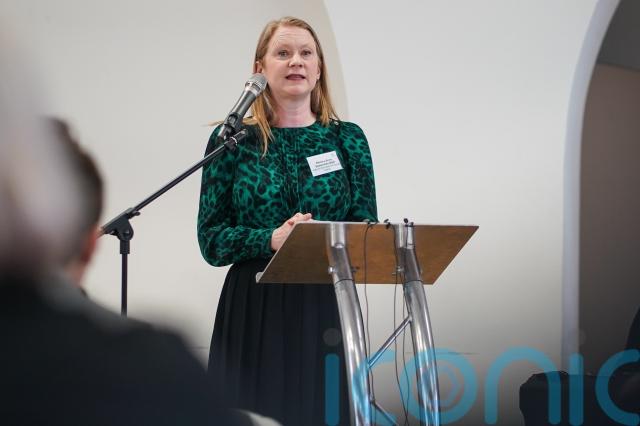
An increase in the uptake of a disability payment in Scotland is partly due to “intentional choices” made by the Scottish Government for a less onerous system, MSPs have been told.
Erin McGinley, senior auditor at Audit Scotland, said more Scots are receiving the Scottish Government-administered adult disability payment (ADP) compared with the number who previously got the UK Government’s personal independent payment (Pip).
Speaking to the Public Audit Committee in Holyrood on Wednesday, she said: “When you look at 2021, before ADP was established in Scotland and before everyone was brought across, 8% of Scots of the working-age population got Pip through the English system.
“In January 2025, it’s 13.6% of the Scots working-age population that are getting ADP, so there’s a significant difference there.”
She said more people in Scotland now identify as having a long-term illness, going from 18.7% in 2011 to 21.4% in 2025.
However she said there are also “intentional choices made by the Scottish Government”.
She said: “The system is set up to be less onerous, has more varied ways of applying compared to the personal independent payment system down south.
“You can apply online, you can apply over the phone. There’s local delivery partners who will assist you in making your application and can come to your house and help you get through the application and provide advice. Social Security Scotland will gather supporting information for the client if they want them to.”
Ms McGinley said having a system that “encourages people to apply” does contribute to the funding gap.
ADP replaces Pip in Scotland and is forecast to be the largest contributor to the funding gap for social security payments with a UK equivalent.
The Scottish Fiscal Commission has previously forecast the ADP spending gap alone will grow to £770 million in 2029-30.
Adult Disability Payment is a lifeline for thousands of people in Scotland.
But there is a £141 million gap between available funding and @scotgov spending.
And that gap’s forecast to grow.
My new report out today: https://t.co/prCoCWqEr4 pic.twitter.com/QkXX3dBQDo
— Stephen Boyle (@AuditorGenScot) September 18, 2025
A report released in September by Audit Scotland said the Scottish Government’s approach to ADP, for example improving benefit take-up and having lighter touch award reviews, generates additional costs.
The Scottish Government spent £2.6 billion on ADP and Pip payments in 2023-24, £141 million more than the funding available to it.
This is contributing to a larger overall funding gap for devolved social security spending of £2.0 billion by 2029-30.
The Auditor General for Scotland, Stephen Boyle, told the committee on Wednesday that this less onerous approach explains areas of the funding gap, for example if a recipient of ADP is in a review process their benefits will not stop.
He said: “Social Security Scotland have been very proactive, really engaged with disabled people’s organisations (and) remarkably successful in promoting awareness and understanding of this benefit, together with a supportive application process, a lighter touch review process.
“There needs to be a wider assessment of which parts of difference in approach is making the biggest difference and that better understanding of the data will inform what might come in terms of future applications and uptake.”
The Audit Scotland report said the Scottish Government has not yet set out a detailed strategy for how it will manage the forecast gap between social security funding and spending within its overall budget.

It said: “The Scottish Government does not have a clear strategy in place to manage risks arising from any UK decisions on benefit spending that could reduce the size of the Scottish budget.”
Social Justice Secretary Shirley-Anne Somerville welcomed the report last month, saying: “I am pleased it recognises that we have successfully transferred the personal independence payment awards of everyone in Scotland to adult disability payment, a system that is underpinned by dignity, fairness and respect.
“Benefit expenditure is the result of our conscious decision to invest in the people of Scotland.
“Here, when somebody is eligible for support, they meet a humane system.
“Our efforts are possible because we balance our budget every year despite over a decade of austerity and punitive welfare cuts from successive UK governments.
“Our medium-term financial strategy and fiscal sustainability delivery plan set out the actions we’re taking to improve the sustainability of the public finances.
“It is important to note that the proportion of the resource budget which the Scottish Government has chosen to invest in enhancing social security in Scotland, compared to England and Wales, is projected to increase by less than one per cent by 2029-30 compared to this current financial year.
“The Scottish Government will unapologetically continue to prioritise measures to reduce poverty and inequality, including through policies like the Scottish child payment and our plans to eradicate the two-child limit next year.”
Subscribe or register today to discover more from DonegalLive.ie
Buy the e-paper of the Donegal Democrat, Donegal People's Press, Donegal Post and Inish Times here for instant access to Donegal's premier news titles.
Keep up with the latest news from Donegal with our daily newsletter featuring the most important stories of the day delivered to your inbox every evening at 5pm.